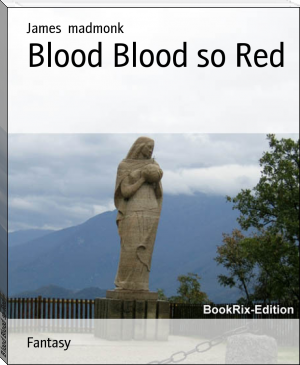Robin Hood by J. Walker McSpadden (best book series to read txt) 📗

- Author: J. Walker McSpadden
Book online «Robin Hood by J. Walker McSpadden (best book series to read txt) 📗». Author J. Walker McSpadden
The King and Queen dismounted from their steeds, ascended the steps of the royal box, and seated themselves upon two thrones, decked with purple and gold trapping, upon a dais sheltered by striped canvas. In the booths at each side the members of the Court took their places; while comely pages ran hither and thither bearing the royal commands. ‘Twas a lordly sight, I ween, this shifting of proud courtiers, flashing of jeweled fans, and commingling of bright colors with costly gems!
Now the herald arose to command peace, and soon the clear note of his bugle rose above the roar of the crowd and hushed it to silence. The tenscore archers ranged themselves in two long rows on each side of the lists—a gallant array—while their captains, as a special mark of favor, stood near the royal box.
“Come hither, Tepus,” said the King to his bow-bearer. “Come, measure me out this line, how long our mark must be.”
“What is the reward?” then asked the Queen.
“That will the herald presently proclaim,” answered the King. “For first prize we have offered a purse containing twoscore golden pounds; for second, a purse containing twoscore silver pennies; and for third a silver bugle, inlaid with gold. Moreover, if the King’s companies keep these prizes, the winning companies shall have, first, two tuns of Rhenish wine; second, two tuns of English beer; and, third, five of the fattest harts that run on Dallom Lea. Methinks that is a princely wager,” added King Harry laughingly.
Up spake bold Clifton, secure in the King’s favor. “Measure no marks for us, most sovereign liege,” quoth he; “for such largess as that, we’ll shoot at the sun and the moon.”
“‘Twill not be so far as that,” said the King. “But get a line of good length, Tepus, and set up the targets at tenscore paces.”
Forthwith, Tepus bowed low, and set up ten targets, each bearing the pennant of a different company, while the herald stood forth again and proclaimed the rules and prizes. The entries were open to all comers. Each man, also, of the King’s archers should shoot three arrows at the target bearing the colors of his band, until the best bowman in each band should be chosen. These ten chosen archers should then enter a contest for an open target—three shots apiece—and here any other bowman whatsoever was asked to try his skill. The result at the open targets should decide the tourney.
Then all the people shouted again, in token that the terms of the contest pleased them; and the archers waved their bows aloft, and wheeled into position facing their respective targets.
The shooting now began, upon all the targets at once, and the multitude had so much ado to watch them, that they forgot to shout. Besides, silence was commanded during the shooting. Of all the fine shooting that morning, I have not now space to tell you. The full score of men shot three times at each target, and then three times again to decide a tie. For, more than once, the arrow shot by one man would be split wide open by his successor. Every man’s shaft bore his number to ease the counting; and so close would they stick at the end of a round, that the target looked like a big bristle hairbrush. Then must the spectators relieve their tense spirits by great cheering; while the King looked mighty proud of his skilled bowmen.
At last the company targets were decided, and Tepus, as was expected, led the score, having made six exact centers in succession. Gilbert of the White Hand followed with five, and Clifton with four. Two other captains had touched their center four times, but not roundly. While in the other companies it so chanced that the captains had been out-shot by some of the men under them.
The winners then saluted the King and Queen, and withdrew for a space to rest and renew their bow-strings for the keenest contest of all; while the lists were cleared and a new target—the open one—was set up at twelvescore paces. At the bidding of the King, the herald announced that the open target was to be shot at, to decide the title of the best archer in all England; and any man there present was privileged to try for it. But so keen had been the previous shooting, that many yeomen who had come to enter the lists now would not do so; and only a dozen men stepped forth to give in their names.
“By my halidom!” said the King, “these must be hardy men to pit themselves against my archers!”
“Think you that your ten chosen fellows are the best bowmen in all England?” asked the Queen.
“Aye, and in all the world beside,” answered the King; “and thereunto I would stake five hundred pounds.”
“I am minded to take your wager,” said the Queen musingly, “and will e’en do so if you grant me a boon.”
“What is it?” asked the King.
“If I produce five archers who can out-shoot your ten, will you grant my men full grace and amnesty?”
“Assuredly!” quoth the King in right good humor. “Nathless, I tell you now, your wager is in jeopardy, for there never were such bowmen as Tepus and Clifton and Gilbert!”
“Hum!” said the Queen puckering her brow, still as though lost in thought. “I must see if there be none present to aid me in my wager. Boy, call hither Sir Richard of the Lea and my lord Bishop of Hereford!”
The two summoned ones, who had been witnessing the sport, came forward.
“Sir Richard,” said she, “thou art a full knight and good. Would’st advise me to meet a wager of the King’s, that I can produce other archers as good as Tepus and Gilbert and Clifton?”
“Nay, Your Majesty,” he said, bending his knee. “There be none present that can match them. Howbeit,”—he added dropping his voice—“I have heard of some who lie hid in Sherwood Forest who could show them strange targets.”
The Queen smiled and dismissed him.
“Come hither, my lord Bishop of Hereford,” quoth she, “would’st thou advance a sum to support my wager ‘gainst the King?”
“Nay, Your Majesty,” said the fat Bishop, “an you pardon me, I’d not lay down a penny on such a bet. For by my silver mitre, the King’s archers are men who have no peers.”
“But suppose I found men whom thou knewest to be masters at the bow,” she insisted roguishly, “would’st thou not back them? Belike, I have heard that there be men round about Nottingham and Plympton who carry such matters with a high hand!”
The Bishop glanced nervously around, as if half expecting to see Robin Hood’s men standing near; then turned to find the Queen looking at





Comments (0)